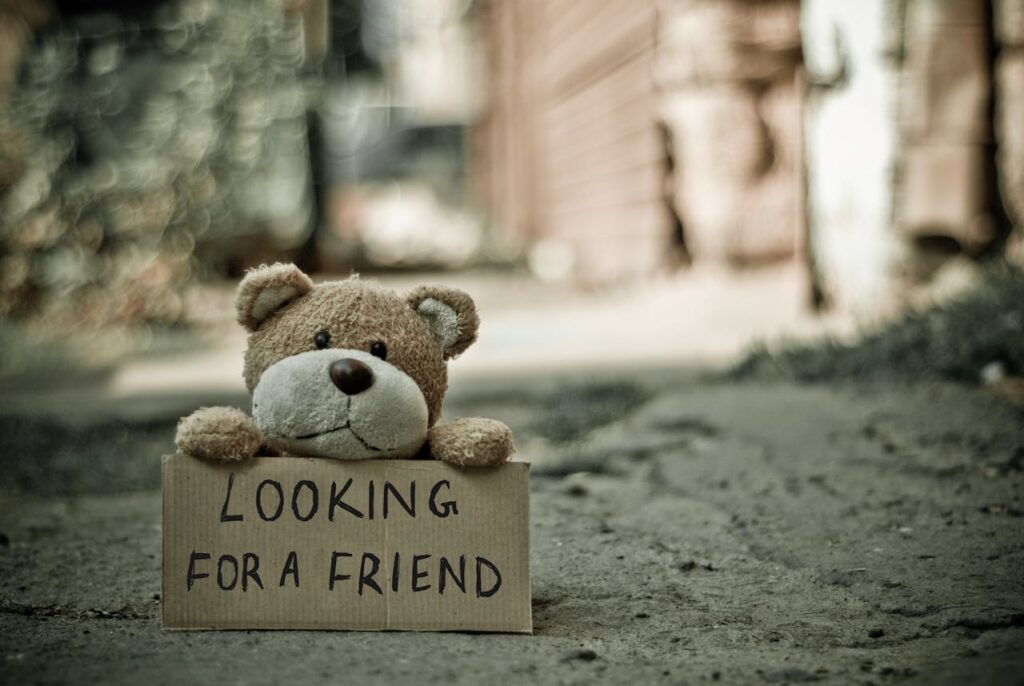Verbal Cruelty in Your Relationship
Verbal cruelty in relationships is a deeply troubling issue, often starting in subtle, almost unnoticeable ways that blur the line between normal disagreements and emotional harm. Recently, I was honored to collaborate with Bride.com to contribute to an article addressing this sensitive topic, offering guidance on how to identify and respond to verbal abuse in relationships. Drawing from my experience as a Licensed Family Therapist, the aim is to provide a compassionate yet practical approach to empower individuals faced with such challenges, equipping them with the tools to recognize unhealthy patterns and create positive change.
Smart notes on this article
- 1 ) What does verbal abuse often look like in a relationship?
- 2 ) What are some types of verbal cruelty
- 3 ) How should you respond to verbal abuse when you experience it? What are some strategies to employ?
- 4 ) When should you seek help from a qualified professional?
What does verbal abuse look like
Verbal abuse in relationships often begins subtly, making it challenging to distinguish from typical disagreements. At first, the way a partner speaks may not raise any red flags, but over time, patterns can emerge that leave you feeling disrespected, belittled, or emotionally drained. It’s crucial to pay attention to how you feel in their presence and how their words impact your self-esteem. Verbal abuse isn’t just harsh arguments or fleeting frustrations—it includes name-calling, insults, derogatory remarks, and humiliating put-downs, often delivered in public or private moments. Recognizing these behaviors early is important to protect your emotional well-being and maintain healthy relationship boundaries.
Other Blogs
Services Offered
What are some types of verbal abuse
Verbal abuse is not limited to shouting or name-calling; it often takes on many forms, some of which can be alarmingly subtle. While constant criticism, insults, or public humiliation are more overt signs, certain behaviors like prolonged silence, guilt-tripping, or manipulative language can also inflict significant emotional harm. These patterns may emerge gradually in relationships, blurring the line between normal disagreements and sustained verbal cruelty. Understanding the wide-ranging types of verbal abuse is a crucial step in identifying toxic dynamics, protecting emotional well-being, and fostering healthier ways of communication in relationships.
Brides.com
Verbal abuse doesn't have a place in a loving, committed partnership.
By Cathy Meyer and Ellen O'Brien October 15, 2024
Even though it’s one of the most common forms of abuse in a relationship, verbal cruelty can be difficult to identify. While having a few arguments is expected in any dynamic, verbal abuse goes beyond just a simple disagreement. “Verbal abuse is name-calling, insults, derogatory language, curse words toward you or others, and humiliating put-downs that are said in public or private settings,” says Megan Paterson, a California-based marriage and family therapist. Verbal abuse often targets someone’s insecurities, but it can vary in form, ranging from shouting and humiliation to more subtle and manipulative tactics.

Common signs of verbal abuse
Recognizing verbal abuse in a partnership can often be challenging, especially when the behavior is subtle or masked as humor or harmless criticism. However, if you’re questioning whether what you or someone close to you is experiencing qualifies as verbal abuse, that concern itself is worth paying attention to. Verbal abuse often leaves you feeling diminished, unsafe, or unsure of your own thoughts and feelings, creating an imbalance of power within the relationship. Listed below are some of the common signs of verbal abuse:
- Your partner put you down
- They raise their voice in attempt to drown you out
- Use threats to intimidate you
- Blame you for the problems
- Dismiss your feelings
- Try to manipulate you
- Call you names
How should you respond to verbal abuse from your partner ?
Recognizing and responding to verbal abuse from a partner can be emotionally complex and require a great deal of inner awareness. Often, verbal abuse progresses gradually, making it essential to stay connected to your intuition and the perspectives of trusted friends or family members who witness the dynamics of your relationship. If you find yourself feeling constantly on edge, fearful of unknowingly upsetting your partner, or experiencing an unshakable sense that something is amiss, these are important signals to address.
Verbal abuse is never acceptable, and it’s essential to remind yourself that it is not your fault. When someone you love speaks to you in a hurtful, dismissive way, it can be easy to internalize their words and minimize your own worth. However, your feelings and needs are valid, and you deserve to be treated with respect. Prioritize your safety above all else—if tensions escalate, calmly remove yourself from the situation if you can, allowing space for de-escalation.
Practicing grounding or breathing techniques can help you maintain your own sense of calm, even during difficult moments. While you can’t control your partner’s reactions, maintaining your inner sense of peace and self-worth is vital. If verbal abuse is recurring, considering your options and seeking support can be a powerful first step toward protecting your emotional well-being and creating a healthier environment for yourself.
Strategies for dealing with an abusive partner
Addressing verbal abuse in a relationship requires clear communication and the establishment of healthy boundaries. Expressing to your partner how their hurtful words impact you emotionally and stating that such behavior is unacceptable can be a vital first step. Setting firm boundaries empowers you to define what behaviors you are willing to tolerate, reinforcing your self-worth and mental well-being. I would assert that failing to address verbal abuse can have severe consequences, potentially eroding your emotional health and self-esteem, and in some cases, escalating into physical abuse. Taking proactive steps to confront the issue not only fosters healthier dynamics but also safeguards your inner peace.
Don't blame yourself
Don’t blame yourself for someone else’s behavior or tell yourself you don’t deserve to be treated better. Give yourself space to process your emotions, heal from this relationship, and seek out the help you need.
Even though verbal abuse doesn’t leave a visible mark, those who experience it still suffer emotionally. Your experience should not be dismissed. By showing yourself the care you’d give to others, you can start on the road toward a fulfilling future. “The more clear and aware you get of yourself as a person, your values, standards, boundaries, the more you’re going to be aware when you are in a relationship with someone who does not respect those things,” says Peck.

It's normal to have a different opinion than your partner.
When conflict arises in a relationship, it’s important to approach conversations with a mindset of understanding rather than winning. A helpful phrase to use when you feel your partner might be invalidating your emotions is, “Well, we have a different perspective on this.” This simple, non-confrontational statement acknowledges the diversity of experiences both partners bring to the relationship while opening the door for constructive dialogue. Healthy communication isn’t about determining who is “right” but rather fostering a mutual effort to truly hear and comprehend each other’s feelings. By focusing on finding a peaceful resolution, couples can reduce resentment and develop deeper emotional trust, creating a stronger, more respectful bond.
Seek professional guidance
Experiencing verbal abuse can leave deep emotional scars that affect your mental health, self-esteem, and relationships with others. Over time, it may lead to feelings of isolation, anxiety, or even depression, making it harder to trust others or believe in your own worth. While verbal abuse is never acceptable, it’s important to know that recovery and change are possible with the right support. Seeking guidance from a professional therapist can be a vital step toward healing. A skilled therapist can provide tools to help both partners understand each other’s feelings, disrupt harmful patterns, and rebuild trust. Through counseling, whether individually or together, you can address the underlying issues and begin to cultivate a healthier, more supportive relationship dynamic.
Reach Out To Me For More Details
If you are looking for an individual or couples counselor ; I am Megan Paterson, LMFT, and I specializes in working with people on improving communication. In 2023 I was voted “Best Of” in Rocklin under Family and Marital Counseling
I’m passionate about bringing harmony, peace, and joy back to couples
Shifting from parenting under the same roof to separated or divorced parents can be tough

Going to counseling can strengthen, or even save, your relationship. I urge people not to wait


